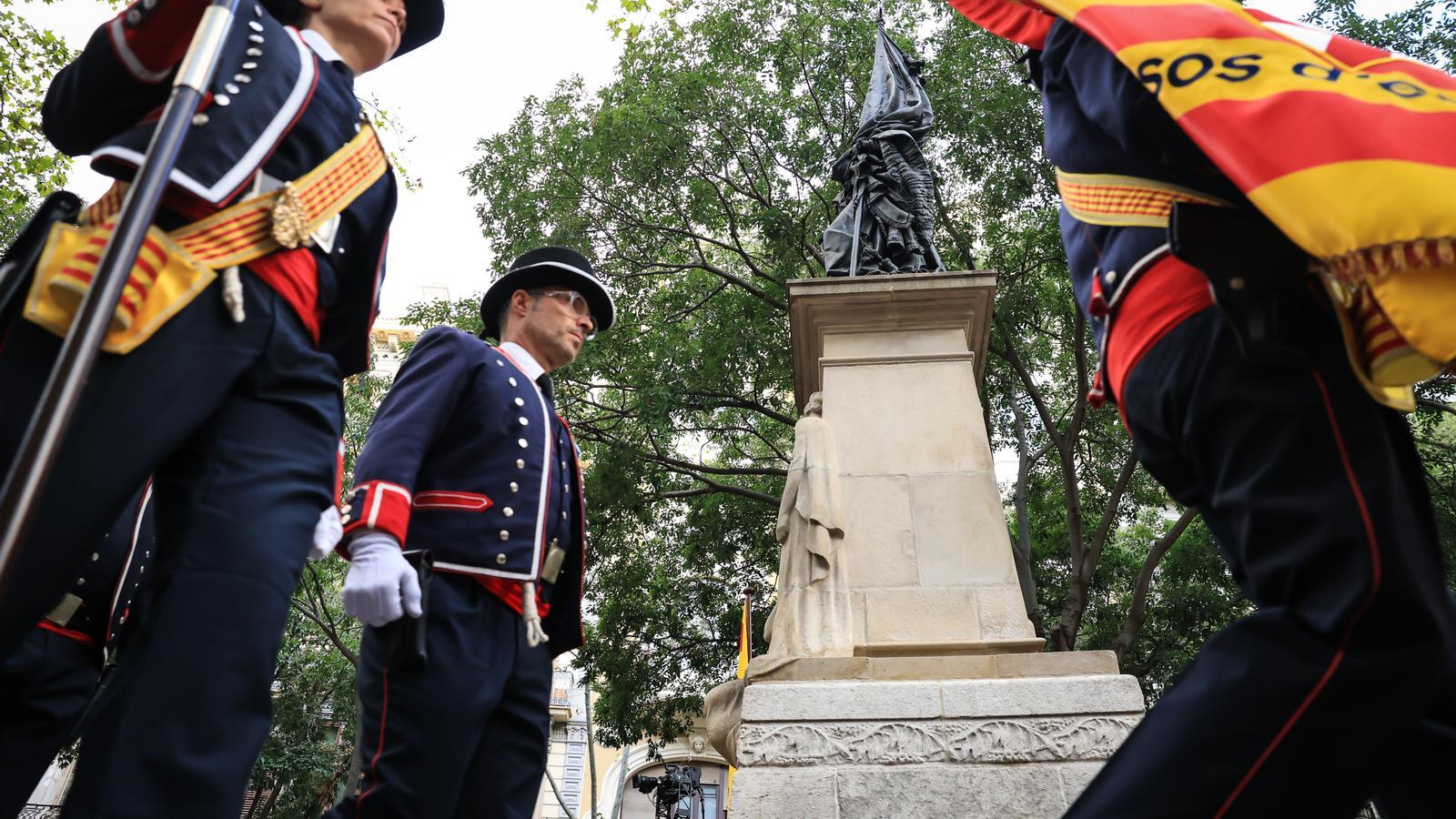The PP will exclude itself from the Diada while it governs Isla
The Popular Party does not plan to return to official Diada events under a government "taken over" by the independence movement.


BarcelonaThe first law that the Catalan Parliament passed in 1980, with self-government restored, was to declare September 11th "Catalonia's national holiday." That decision received unanimous support from the Catalan parliament, including the conservative UCD (United Left) party, and since then, neither the Popular Alliance nor the Popular Party, after its refoundation, ever questioned the fact that the Diada was to commemorate the fall of Barcelona to the Bourbon troops in the War of the Spanish Succession, which led to the loss of laws, as well as of its language and customs. Everything fell apart two years before the Trial, when in 2010 a protest atmosphere was already emerging that the Popular Party did not believe was "for all Catalans." Three years later, the PP withdrew from the Generalitat's events. This year, it was ratified in a self-exclusion that has been going on for more than a decade and which, as the party explained this Friday, will last throughout the Salvador Illa era, at least as long as their alliances with independentists continue. In this way, the Popular Party (PP) places itself alongside Vox in an isolation that Ciudadanos also held until a few years ago.
"In Catalonia, the Diada has not represented all Catalans for many years now, and therefore, as long as this condition does not change, we from the PP will not be able to participate in the events organized by the Government," Manuel Reyes, deputy spokesperson for the Parliament and president of the PP in Barcelona, explained at a press conference. The mayor of Castelldefels also clarified that the Popular Party (PP) has participated "in many events at the municipal level in which the different city councils have held open and participatory events for all" because "the PP does participate in plural events that address the reality of Catalonia." On the other hand, it does not participate in those of the Catalan executive, nor in the traditional offering to the monument of Rafael Casanova, nor in the new raising of the flag in the Parliament the day before of the Diada, nor in the institutional event of the Government: "We will hardly be able to participate in events of a government that is the prisoner of a man who is outside Spain, fleeing from justice, while these things do not change in Catalonia," Reyes concluded.
Complex balance
The Popular Party's narrative is a complex one. The Catalan executive is "taken over" and "kidnapped" by former president Carles Puigdemont, according to Reyes, because the Popular Party attributes to President Salvador Illa the role of mediator and interlocutor that Santos Cerdán played until a few months ago, negotiating with Junts from abroad. They also believe that he is being held hostage by ERC, although he did not say so this Friday, since the Popular Party insists every week that "ERC rules" and that Isla, after all, does what suits the Republican leader, Oriol Junqueras—which is the argument they already highlighted in last year's Onze de Setembre. Although the Popular Party (PP) has been repeatedly insisting since the outbreak of the Catalan Revolution (Spanish: Proceso), they do attend municipal floral offerings and express their congratulations on the Day—the leader of the national PP, Alberto Núñez Feijóo, also expressed his congratulations in a bilingual message—but they distance themselves from the main events. The mayor of Badalona, Xavier García Albiol, organizes National Day events and participates himself, as does the King and Queen of Castelldefels. Both mayors opt for this pluralistic celebration, while the last PP mayor they had, Josep Tutusaus of Pontons, has shown no interest in this festivity in his small town.
However, the core of the Diada does not count on the presence of the PP. In 2010, following the Constitutional Court's ruling against the Statute of Autonomy, the People's Party (PP) laid a wreath for Rafael Casanova, the last chief minister of Barcelona before the defeat at the hands of the Bourbon army, "due to the pro-independence drift." Some Popular Party members, such as former councilor Josep Bou, had distanced themselves from them to pay tribute to Casanova.
